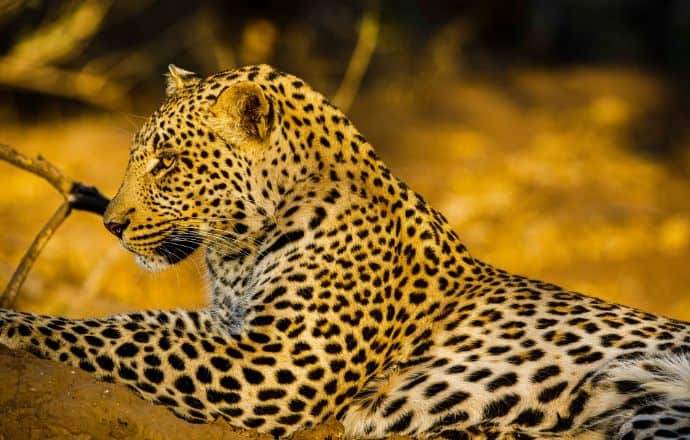Fueled largely by habitat loss and poaching, the rapid decline of wildlife in Africa has been making headlines for years now.
Perhaps it’s not surprising that many people have become numb to the news. Still, when you dive into the numbers, the statistics are staggering.
South Africa alone has been losing an average of five Lions per day, five Elephants per hour, and a Rhino (whose horn is valued at around $65,000 per kg) every seven hours.
The devastating decline of these key species, which could eliminate the wild population of African animals by 2050, threatens both the environment and the economy of myriad African nations.
Thanks to its stable government and progressive social policies, Botswana, Africa has emerged as a burgeoning ecotourism hotspot.
Ecotourism in Botswana is big business, bringing in some $250 million in annual revenue, and its growth has surged dynamically in recent years.
Here’s a look at why the conservation of Botswana wildlife has proven so successful, and a few of the major attractions nature and wildlife lovers should add to their bucket list.
READ MORE: The 10 Best Places for African Safari Tours
BOTSWANA WILDLIFE CONSERVATION
As a nation, Botswana has been increasingly focused on wildlife conservation ever since the early 1960s.
That was when the indigenous Batawana people established the Moremi Game Reserve (the first African gam reserve of its kind) after seeing their lands threatened by illegal hunting and the development of cattle farms.
In terms of preventing poaching, Botswana has considerable natural advantages over safari hotspots such as Kenya, South Africa, and Tanzania.
With just over 2.2 million residents, it has a much smaller population density than those nations. As a land-locked republic, it has no ports for smugglers to take advantage of, and a relatively low rate of corruption compared to other African wildlife-rich countries.
Over the past decade the country has become considerably more aggressive in its efforts to nip poaching in the bud.
Botswana banned commercial hunting altogether in 2014, and its anti-poaching laws are very strictly enforced.
Botswana’s anti-poaching unit is largely run by the country’s military forces, with top-notch training, helicopters, military-grade weapons and supplies. And the government-approved shoot-to-kill policy means poaching comes with serious consequences.
Perhaps most importantly, in Botswana wildlife…
Click Here to Read the Full Original Article at Green Global Travel…
